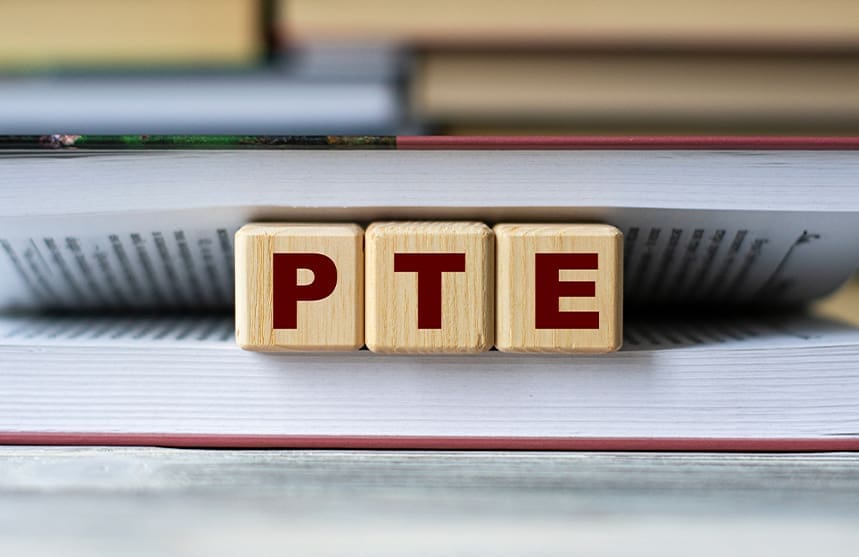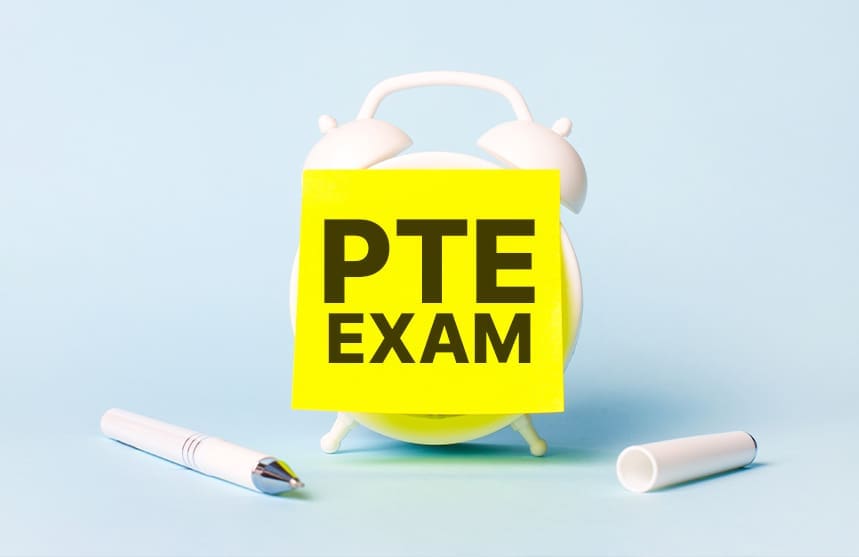Study in Poland – Your Gateway to Affordable European Education
ACT Syllabus 2025, Section-Wise Syllabus, Exam Pattern.

The ACT Exam Syllabus 2025 has four primary areas of focus – English, Mathematics, Reading, Science, and Writing, with the last one being optional. The test is multiple choice questions (MCQ) with four multiple-choice choices each for English, Mathematics, Writing and Science, making it a total of 215 questions. The ACT exam also includes the component of writing which some colleges require. So, it is possible that trying on the writing section of the ACT exam in India can be helpful for students.
The ACT exam is set in such a manner that the candidates can identify it with their high school curriculum; hence, the ACT exam curriculum includes all the key subjects to ensure fairness. ACT exam syllabus 2025 is structured in a way that tests the ability of the applicant in reason, analysis, problem-solving, and editing. ACT syllabus is broader than the syllabus of SAT and comprises two more sub-tests in contrast to SAT. There is also an optional writing section for which additional charges apply, and this is only for those who want to take the ACT exam and not the SAT.
ACT Syllabus 2025 Highlights
Students are advised to check out the vital information related to ACT exam Syllabus 2025 before starting your ACT test prep:
| Exam | Details |
|---|---|
| Exam Name | ACT Exam |
| Full Form | American College Test |
| Exam Sections | English, Mathematics, Science and Reading, Writing (optional) |
| Average and maximum score | 21-36 |
| Exam Duration | 2 hours 55 minutes (40 minutes more if writing is included) |
| Total Attempts | USA: 7 times a year Canada: 7 times a year Other countries: 5 times a year |
ACT Syllabus 2025 Section-wise
The ACT’s English section basically focuses on the following areas of study to understand the student’s understanding of the language:
ACT English Section Syllabus
- Usage/Mechanics: This section constitutes 52-55% of total marks, and in this, the candidate has to point out the faults in the text by applying the knowledge regarding grammar rules, usage and mechanics.
- Rhetorical Skills: The pass mark range is 15-17% and tests the students’ awareness of correct usage in terms of the right tone and practice.
Punctuation: The questions include internal and ‘end of sentence’ punctuation with most of the questions based upon the way that the particular punctuation alters the meaning.
Grammar and Usage: These questions also involve agreement between the pronoun and antecedent, subject and verb and that of modifiers and the words which they modify; case of the pronoun; formation of verb; correct usage of idiomatic expressions; and formation of comparative and superlative degrees of adjective and adverbs.
Sentence Mechanics: The arrangement of cassettes and interconnectivity between and among clauses, modification of construction, and augmentation of modifiers are tested.
Strategy: These are questions that check the extent to which you can pursue a topic by selecting terms suitable to the purpose and audience of your essay, evaluating the impact of including or excluding materials to support an argument, and evaluating your statements with reference to context.
Organisation: These questions address the orientation of ideas and the selection of appropriate introductory, link, and terminal sentences.
Style: Such questions check how effectively you select correct words and vision, control the parts of a sentence, sustain the degree of style and constructed tone, and prevent using ambiguous pronouns.
ACT Exam Math Section Syllabus
- Pre-Algebra/Elementary Algebra: About 57 to 60% weightage is assigned to this section, and the focus is to test the applicant’s knowledge in the areas of understanding of these topics in general.
- Plane Geometry/Trigonometry: The overall weightage of this section is between 12-15%, and how the students implement it forms the essence of it.
Pre-Algebra: Candidates can be tested on Whole numbers decimals and place value, exponentiation and square roots and approximations, fractions, linear equations, Integers, scientific notation, factors, ratio proportion data collection representation and interpretation, and percent; Descriptive statistics.
Elementary Algebra: There are questions on quadratic equations solving, binomials multiplying, solving linear equations, inequalities, substitution, and simplifying expressions.
Plane Geometry: The questions refer to 3-D geometry, triangles, parallelograms, lines and angles, volume, polygons and circles, triangles and parallelograms.
Trigonometry: The questions are on identity and graphs of trigonometric functions, graphs of trigonometric relations, triangles and trigonometric equations.
ACT Exam Reading Section Syllabus
The weightage of the reading section in the ACT exam is as follows: Key Ideas & Details which carries a weightage of 52–60%; Craft & Structure has a weightage of 25– 30%; Integration of Knowledge & Ideas having a weightage of 13–23%. The students are assessed in the following areas of study:
- Social Studies: These questions are drawn from passages in biography, anthropology, business & economics, psychology & health, history & archaeology, geography & travel, political science, education & sociology.
- Natural Sciences: Such questions are drawn from passages in meteorology, astronomy, biology, botany, natural history, ecology, geology, physics, medicine, microbiology, anatomy, physiology, technology, chemistry, and zoology.
- Literary Narrative/Prose Fiction: These questions are drawn from novels/ memoirs, short/ personal narratives, essays, etc. Section III of the test focuses on prose fiction, and comprehension questions are derived from novel and short story passages.
- Humanities: These questions are derived from passages in arts, dance, film, language, radio, critiquing literature, philosophy, music, television, ethics, architecture, and theatre.
ACT Exam Science Section Syllabus
The distribution is done according to the section in the ACT that focuses on Science as will be described below. Read on for more details:
- Data Representation (25-30%): This section includes Graphic and tabular material similar to those in science journals and texts. The questions related to this format involve assessing skills such as the ability to read and comprehend information presented in graphs, the ability to read and comprehend the contents of tables, and the ability to interpret scatter plots.
- Research Summaries (45-60%): It discusses experiments and their general explorations and findings. These questions are oriented mainly on the issues of the experiments’ design and the result reporting.
- Alternative Hypotheses (15-20%): This section offers one or more hypotheses or perceptions that can result from divergent assumptions or insufficient information and are not in accord with each other. The questions are aimed at the analysis, understanding, and comparison of the merits of one hypothesis against other hypotheses.
ACT Exam Pattern 2025
The ACT exam syllabus consists of four composite areas: English, Mathematics, Reading, and Science, and the Writing test (Essay). In total, the ACT takes 3 hours and 35 minutes, including the ACT essay, and 2 hours and 55 minutes without the ACT essay.
During the test, there are two breaks: a small interval after completing the second and fourth sections, but only for those who decided to take a Writing section part. Students are advised to check out the ACT Exam format 2025 mentioned below:
| SECTION | TYPES OF QUESTIONS | SUB-SECTIONS | TIME ALLOTTED |
|---|---|---|---|
| ENGLISH | 75 Multiple-Choice Questions (MCQs) | Usage of language | 45 Minutes |
| Grammar | |||
| Usage | |||
| Punctuation | |||
| Sentence structure | |||
| Rhetorical Language Skill | |||
| Organization | |||
| Style | |||
| Strategy | |||
| MATHEMATICS | 60 Multiple-Choice Questions (MCQs) | Intermediate Algebra | 60 Minutes |
| Coordinate Geometry | |||
| Trigonometry | |||
| Plane Geometry | |||
| Pre- Algebra | |||
| Algebra Elementary | |||
| Break | Break | Break | Break |
| READING | 40 Multiple-Choice Questions (MCQs) | There will be a total of four passages. Each passage will be given from various sections like fiction, humanities, social studies and science. | 30 Minutes |
| SCIENCE | 40 Multiple-Choice Questions (MCQs) | Conflicting viewpoints | 35 Minutes |
| Data representations | |||
| Graphs and tables | |||
| Research methodology and summary | |||
| WRITING | 1 Essay | One writing topic | 40 Minutes |
| Total time allotted: 3 hours 35 minutes (excluding the breaks) | 215 Questions | 4 compulsory Sections (Writing optional) | 3.35 Hours |
ACT Syllabus 2025 Time Management
Time management should be embraced if one is to come out successful in the ACT examination. Time management during the test has many implications, and it can either work in your favour or against you. In this article, you will be presented with a detailed guideline on how to allocate your time wisely in the ACT exam sections.
| ACT Sections | Time to be Spent per ACT Section | Number of Questions on the ACT |
|---|---|---|
| English Section | 45 minutes | 75 questions |
| Mathematics Section | 60 minutes | 60 questions |
| Reading Section | 35 minutes | 40 questions |
| Science Section | 35 minutes | 40 questions |
| Writing Test Section (Optional) | 30 minutes | 1 essay prompt |
How to Prepare for ACT Exam 2025
To ace the ACT Exam 2025, students need to understand about how to prepare for ACT Exam 2025:
- Set a Target Score
- Create a Study Plan
- Take Diagnostic Tests
- Use Official ACT Practise Materials
- Take the Optional Writing Section
- Be consistent
You ought to set your goal based on the standards of the colleges you are applying to. Consult the average Scholars of the target universities to create a realistic working model of the Scholar you wish to score.
Select a study plan that is unique to a particular timetable and the methods of training. Do not burden yourself with the whole huge preparation task; instead, divide it into various sections to work through. Spend relatively more time on areas that you require more assistance in.
First, try to practise by taking a full-length diagnostic test. This allows you to determine an initial number score and recognise abilities and liabilities. Utilise this knowledge as the basis for fashioning your study schedule.
Use official ACT practice tests and materials as much as possible. Their resources are closer to the actual exam type as compared to the other tests available in the market. Go for the Official ACT Prep Guide or refer to the pages from the ACT organisation’s website.
If you are aiming to write the ACT with Writing, you need to practice writing essays within 40 minutes. It is essential to concentrate on providing a clear structure for ideas and evidence.
In planning, a good practice is to ensure that it is done consistently. Set time to read material and spend at least one hour a day and review what has been covered in the week. Review lessons that are challenging to comprehend and elements understood in the previous lessons.
Conclusion
ACT exam syllabus 2025 enables you to assess your abilities and preparedness for college in a whole-some manner. You need to understand all the exams to study abroad before choosing your go to examination. Whatever subject area you are doing in the English section, solving equations in Mathematics, reading passages in the Reading section or interpreting scientific data in the Science section, each section of the ACT is very strategic in testing essential skills that are required in college.
To prepare for the ACT, one has to understand the syllabus content, practise in equal portions, and manage his/her time well. If you will read the topics of the test and use some time to learn, you will be in a good position to cope with the challenges that are likely to face you. Complete your study abroad journey with MetaApply.
Remember, ACT is not simply about the knowledge you may possess; it also measures the time and effort you put into preparation. It is quite possible to aim at your target score and attain your vision of getting admission to the college of your choice. Begin on time, be committed, and act on what is within your disposal. It must be clear by now that success is achievable – reach for it!
Frequently Asked Questions
ACT The ACT has four main areas of content: English, Mathematics, Reading, and Science, with an ACT Writing and Language test.
Up to this year, no alterations in the ACT syllabi for the year 2025 have been developed. However, the student should visit the official ACT website to see what the organisation announces.
The Writing section, like the rest of the placement tests, remains optional to students. If you are not sure whether some of the colleges you are applying to require them, then it is advisable to check the colleges’ admission requirements before including it.



















































